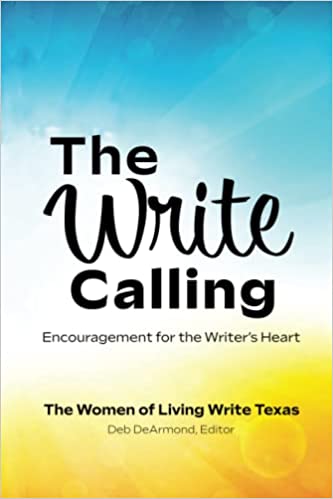How to Start a Writers Group With Sharon Tedford
Description
<figure class="wp-block-image size-large">
 </figure>
</figure>Do you know the feeling of arriving home after a party only to look in the mirror and discover you’ve had food on your face the whole night and nobody told you?
Everybody saw it, but you didn’t.
Writing can be like that. We often lack the perspective to see where our writing needs to be.
You can hire an editor and eventually you should. But if you’re still working to improve your craft, you’re not quite ready for an editor. Instead, you need a critique group.
I have been recommending critique groups for years. I hear the same excuses when I ask authors why they’re not in a critique group:
- There’s no critique group in my area.
- I live in the middle of nowhere.
- I live in the suburbs.
- I live in the city.
- All the critique groups are different.
The simple solution to all those problems is to start your own critique group.
How do you start your own critique group?
How do you start the kind of critique group other talented authors want to join?
I asked Sharon Tedford. She’s an international singer and songwriter, a multipublished author, and host of the award-winning God in the Ordinary Podcast.
She’s a member of the Living Wright Texas writers tribe that encourages writers to grow the Kingdom of God through their craft. The group recently released its first anthology, The Write Calling.
<figure class="wp-block-image aligncenter size-full">
 </figure>
</figure>What are some benefits of being in a writers group?
Thomas Umstttd, Jr: What are some benefits of being part of a writers group?
Sharon Tedford: I am in a writers group because I thought my writing and punctuation were great. But I’m a Brit, and American punctuation is a little different. Since I live in Dallas, I needed to learn American punctuation.
When you get together with writers who love Jesus, who know more than you do, and who see things differently, you end up with some absolute gems and encouragement as well. When you feel your writing is good, one of your fellow writers might be able to see the food on your face and tell you it’s rubbish.
On the other hand, when you feel like giving up, your writer friends might say, “We can help you improve upon that, but your writing’s really good. I love this bit.” Being in a group of people with the same goal, who love Jesus, and who want to improve is a win for everybody.
Thomas: There’s an African proverb that says, “If you want to go fast, go alone. If you want to go far, go together.” The writing journey, especially the journey to commercial success and making a living, is a long journey. It doesn’t happen overnight. Commercial success often takes years or decades.
The journey is too long to go alone.
You need critiques as well as encouragement. And it’s fun to be around other authors.
A writers conference is an expensive way to experience a community of writers. When you talk about a film or book with other authors, you can use a more sophisticated vocabulary and talk in-depth about protagonists, antagonists, and motivations. It’s great fun to go to a writers group.
Sharon: When our group gets together, we spark ideas for each other because we have the same interests. We enjoy texting each other to share helpful articles or prayer requests. We love each other, and we are friends. That friendship has grown because we have the same goal in mind.
How did your writers group come together?
Sharon: My husband introduced me to his friend’s wife, who was also a writer. We started talking, and she persuaded me to attend a writers conference with her, which I did with much trepidation.
As a not-yet-published author, I listened to all the conference speakers and discussions. It was all wonderful and terrifying. We met many people, and it was fun to remember we were all there for the same reason.
At this conference, Deb DeArmand, one of our Living Write Texas founders, was chatting with two other proteges who were living in the Dallas Fort Worth area. They were all bemoaning the fact that there was no writers group here.
One of them finally said, “Why don’t we just start one? There’s three of us.”
They hosted the first meeting, and each of them invited a few other writers. I was invited to that meeting.
When people ask me how to start a writers group, I tell them to network. It’s such an ugly term, but you don’t have to network just get a business card. You can meet people to begin a relationship.
Now, when I go to a conference, I always write “Dallas Fort Worth” under my name on my name tag, so people can see where I’m from. When you’re visiting with someone at a conference, they might see where you’re from and discover they live three miles down the road. You might decide to meet in town to talk about writing.
Thomas: You only need two or three people to form a group. In fact, I recommend starting a writers group with a few people and then growing it from there. Starting with 40 writers who’ve never been in a group before will be unwieldy.
Sharon: We have eight to ten people and never more than ten. Membership in our group is by invitation only. If someone wants to join, we encourage them to start their own group, and we help them. A group of 40 is too big for this kind of group. It’s impossible to maintain close friendships with 40 people.
Thomas: There is a place for a group meeting of that size. For instance, you could host a meeting and invite presenters to speak to your group.
I’ve presented at those writers groups. There’s nothing wrong with that many people, but it doesn’t replace the smaller critique group. In a small group, you can actually read each other’s writing.
You can’t read 40 people’s manuscripts, but you might be able to read five and give feedback.
Sharon: We call ourselves a tribe because we’re more than a critique group.
We must be fully engaged with each other, and you can’t do that with 40 people.
How often do you meet, and what do you do in your meeting?
Sharon: We meet three times each year as a group; and for our fourth meeting, we attend a conference together. We typically share a room at the conference because it’s cheaper.
Every time we meet, we go away for a weekend. We meet on a Friday evening after work for those who still have a day job. We begin with worship on Friday night, meet all day Saturday, and then up until lunch on Sunday. Some of us have farther to drive and need to go to work the next day.
Between our in-person meetings, we have Zoom calls and text threads.
How often do you meet via Zoom?
Sharon: If we haven’t seen each other for a while, particularly during the summer, we’ll meet with a specific goal in mind.
A group member may have questions for the rest of us. Someone may want to read a passage and get feedback. Another person may have a tricky sentence they want help with. We also might kick around ideas for the next in-person meeting agenda or simply pray together.
Zoom calls are a great addition to our face-to-face meetings.
Three Ingredients for a Successful Writers Group
Thomas: Successful writers groups have three main ingredients. Every group has a combination of online meetings, in-person meetings, and asynchronous communication, like your texts. It’s asynchronous in the sense that you’re not live at the same time.
The in-person meeting is probably the most important because that’s where friendships are developed. In-person meetings give meaning and context to your text threads.
Some groups, like yours, meet infrequently; but when you get together, you take an entire weekend. Other groups meet more frequently and have shorter meetings. For example, a group might meet weekly on Thursdays at 7:00 for an hour.
Some groups will combine their quarterly meetings with a writers conference. If the conference starts on Thursday, the group members may arrive on a Tuesday and rent an Airbnb for a couple of days. Then they’ll all go to the conference together. They’re able to use their travel twice, which makes the flights effectively less expensive.
When you meet in person, what is your schedule for the weekend?
Thomas: When you meet on Friday, I imagine





